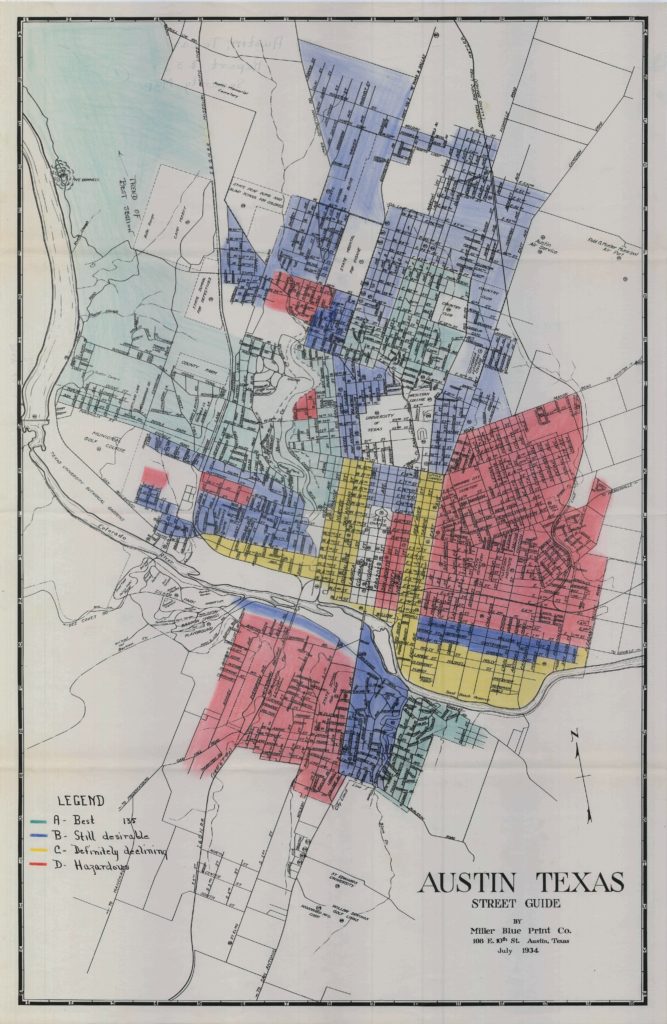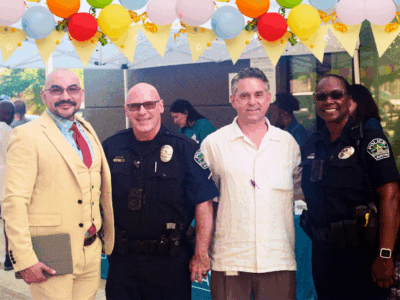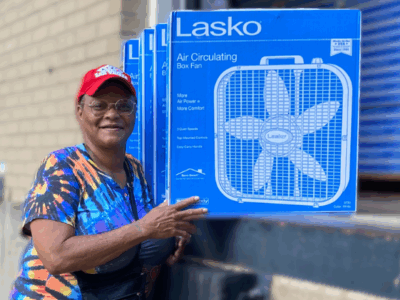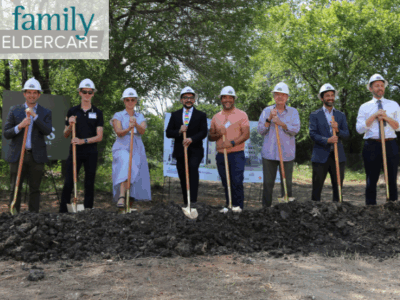Family Eldercare will soon be launching two supportive housing projects to provide permanent homes for Austinites who have been experiencing homelessness. During Black History Month, we are reflecting on Austin’s history and many of the policies that have led to two concerning and uncomfortable truths our community is facing: the population of people experiencing homelessness in Austin is disproportionately Black and increasingly made up of older adults.
What does Austin’s Black history entail?
Immediately following the Civil War, many formerly enslaved African Americans migrated to Austin and settled in freedman communities that were geographically integrated throughout the city.
Though Austin served as a refuge from the racial violence that prevailed in the American south during this time, it was not long before African Americans began to be pushed away from Austin’s urban areas.
By 1928, the Koch & Fowler engineering firm had developed a city plan for Austin, Texas which recommended the development of a “Negro District” just east of I-35. This area became the only part of the city where African Americans could access schools, parks, and other public services, incentivizing African Americans to move to the newly concentrated East Austin.
Following the Great Depression, in 1935, the federal government began backing mortgage loans to rebuild household wealth. However, government-backed mortgages were not offered in predominately African American areas that were redlined or deemed by the Home Owners Loan Corporation to be “hazardous” or “definitely declining”.
Where are we now?

Fast forward nine decades and data suggests that the inequities initiated by Austin’s 1928 city plan and federal redlining policies continue to have a negative impact on Black communities. Austin has consistently ranked among the most economically segregated cities in the United States.
Economic segregation by race has many implications, especially as we see a rise in the gentrification of Austin’s East side. In 2018, The Uprooted Project of the University of Texas at Austin conducted a study mapping the displacement of gentrification in Austin and shared the following data critical to our Family Eldercare community:
“Central East Austin and a few neighborhoods south of Ben White Boulevard have the highest property tax delinquency (2 years or more) and homestead exemptions. Even with senior tax exemptions, Austin’s seniors still experience high tax burdens as the city property taxes increased by at least 100% from 2006 to 2015 for homeowners, outpacing increases in income. Low-income senior homeowners thus face a higher rate of tax delinquency. Through Texas laws, cities are restricted from providing targeted property tax relief that would allow seniors and persons with disabilities to defer their property taxes until their death or when their homes are sold.”
As we see a continued rise in the older adult unhoused population in Austin with Black or African Americans being disproportionately impacted, we invite our community to advocate for policies and practices that acknowledge our city’s past in order to build a more equitable and sustainable future for all.
For example, you can write your County Commissioners and City Council members to tell them you support funding and policies for affordable housing land banking. Land Banking allows a non-profit affordable housing developer to buy and hold land now before it continues to rise in cost tomorrow. We can increase opportunities for building deeply affordable housing near transit, health care, and existing community networks through land banking.


